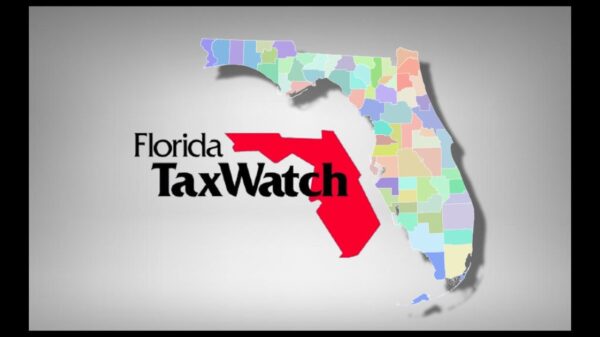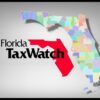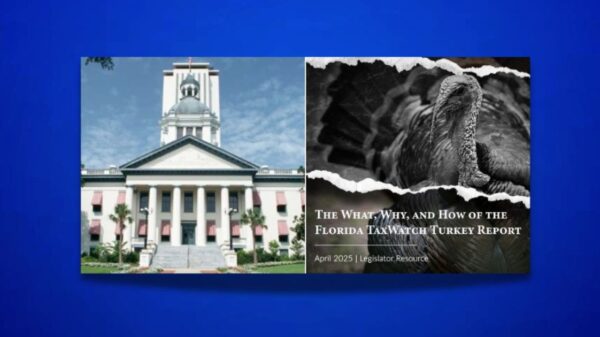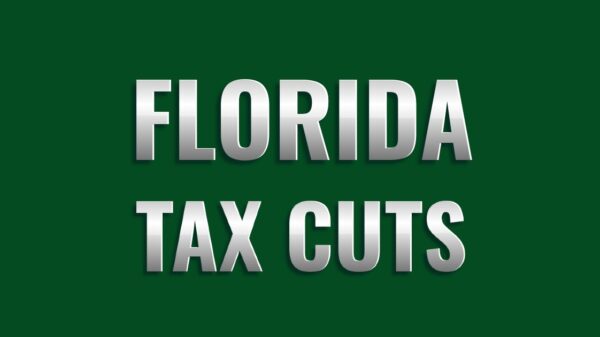This week, Florida TaxWatch (FTW) released “Using Public-Private Partnerships and Public-Public Partnerships to Meet the Growing Demands for Public Infrastructure, “a report highlighting the opportunity for increased private sector investment in Florida’s critical public infrastructure.
FTW also outlined recommendations for facilitating such investment, drawing from well-planned and successfully executed infrastructure-related public-private partnerships (PPPs) and public-public partnerships (PUPs) in Florida and other states.
Florida TaxWatch President and CEO Dominic Calabro weighed in on the report on Tuesday.
“Florida’s population has been rapidly increasing and will continue growing at a steady pace, placing considerable demands on our public infrastructure in the years ahead. When compounded by resiliency risks, rising sea levels, and more frequent and intense coastal storms, the state will need additional funds to build and maintain everything from roads and bridges to airports and seaports to wastewater treatment plants. With public funding constraints often slowing project starts, the focus can now shift to private sector investment, a vehicle to accelerate much needed local projects,” Calabro said.
“In particular, public-private partnerships and public-public partnerships – where a non-government entity shares the financial risks for a project in the public interest – can go a long way in helping meet future infrastructure needs, as they have been shown to lower project costs, improve the schedule for delivery, and provide other public benefits, while also fostering job creation, economic development, and competition,” he added. “To that end, Florida TaxWatch presents this comprehensive research to encourage policymakers to address the hurdles in Florida law that often deter or prevent private entities from engaging in these infrastructure-related projects, and we stand ready to assist the Florida Legislature in efforts that will allow for the quick and straightforward implementation of such proposals – of course, while still maintaining transparency, accountability, and taxpayer value.”
According to FTW, the gap between Florida’s infrastructure needs and the state’s current funding is nearly $2.59 trillion over 10 years. By 2039, a continued underinvestment in Florida’s infrastructure at current rates will have serious economic consequences, including $10 trillion in lost Gross Domestic Product (GDP), more than three million lost jobs, and $2.4 trillion in lost exports, which will cost the average Florida household $3,300 a year.
While the Florida Legislature has acknowledged the need for private investment in infrastructure, FTW identifies PPPs and PUPs as specific solutions. PPPs are contractual arrangements between public and private sector partners that typically involve a government or public agency contracting with a private entity to perform functions normally undertaken by a public agency, with the agency remaining ultimately responsible for the public function. PUPs are collaborations between two or more public entities, such as a public authority or nonprofit organization, to pool their resources to provide or improve public services, and unlike PPPs, neither partner in a PUP expects to earn a profit from the collaboration – the goal is to improve efficiency and lower the costs.
FTW asserts that by shifting responsibility for the construction, long-term operation, and/or maintenance to a non-government entity, these projects provide a powerful incentive to ensure quality construction, since the private partner will share the financial risk, thereby enabling the public partner to focus on the outcome-based public value they are trying to create.
Finally, due to the slow pace of government procurement, FTW believes there should be legislative effort to “fast track” infrastructure proposals wherein a non-government entity shares the financial risks for the project and the project proves to be in the public interest. To accomplish this goal, FTW provides six recommendations for the Florida Legislature’s consideration, ranging from amendments to Florida Statutes to creating an Office of Infrastructure Investment that reports to the governor.























